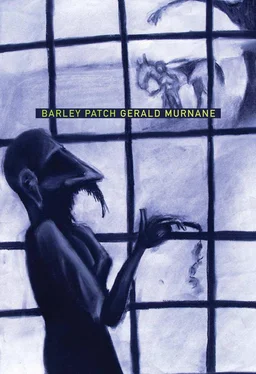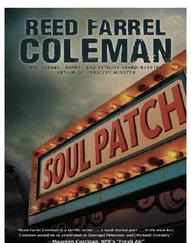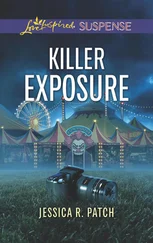Gerald Murnane - Barley Patch
Здесь есть возможность читать онлайн «Gerald Murnane - Barley Patch» весь текст электронной книги совершенно бесплатно (целиком полную версию без сокращений). В некоторых случаях можно слушать аудио, скачать через торрент в формате fb2 и присутствует краткое содержание. Год выпуска: 2011, Издательство: Dalkey Archive Press, Жанр: Современная проза, на английском языке. Описание произведения, (предисловие) а так же отзывы посетителей доступны на портале библиотеки ЛибКат.
- Название:Barley Patch
- Автор:
- Издательство:Dalkey Archive Press
- Жанр:
- Год:2011
- ISBN:нет данных
- Рейтинг книги:5 / 5. Голосов: 1
-
Избранное:Добавить в избранное
- Отзывы:
-
Ваша оценка:
- 100
- 1
- 2
- 3
- 4
- 5
Barley Patch: краткое содержание, описание и аннотация
Предлагаем к чтению аннотацию, описание, краткое содержание или предисловие (зависит от того, что написал сам автор книги «Barley Patch»). Если вы не нашли необходимую информацию о книге — напишите в комментариях, мы постараемся отыскать её.
Barley Patch — читать онлайн бесплатно полную книгу (весь текст) целиком
Ниже представлен текст книги, разбитый по страницам. Система сохранения места последней прочитанной страницы, позволяет с удобством читать онлайн бесплатно книгу «Barley Patch», без необходимости каждый раз заново искать на чём Вы остановились. Поставьте закладку, и сможете в любой момент перейти на страницу, на которой закончили чтение.
Интервал:
Закладка:
During most of the years before I stopped writing fiction, I would have afforded little cheer to any personage who had begged me in a dream to allow him or her into my fiction. I would have tried to explain to the personage that he or she would still be no more than a personage, even if I were to report his or her existence in my fiction. I would have tried to explain that no sort of character could be said to exist in my fiction; that anyone mentioned in my fiction could be never more than a fictional personage, even if he or she might have seemed to resemble some or another person who lived in the place often called the real world or some or another character mentioned in some or another work of fiction. In fairness to myself, however, I might have tried to explain that the state of existence of the personages in my fiction was by no means wretched; that many such personages appeared against a background of mostly level grassy countryside; and that many a personage was the object of my continual curiosity, so that I longed to be on familiar terms with the personage, even if my only means of achieving this might have been the preposterous project of my becoming myself a personage in my own fiction.
On a certain day while I was trying to write the work of fiction that I would never complete, and while I was thinking confused thoughts about fictional characters and fictional personages and about the scenery where fictional events were reported as taking place and the scenery that might have lain out of sight beyond that scenery — one day, the thought occurred to me that the writer Ivan Turgenev had wrongly interpreted what he had seemed to see while he slept. He was reported as having seen personages pleading to be allowed into his works of fiction, but I wondered whether the writer had mistakenly interpreted the sighs, the groans, and the gestures of the personages. I supposed that Ivan Turgenev had been no less conceited than most writers of fiction. I supposed that he believed the characters in his fiction enjoyed a more satisfying existence than was enjoyed by the lost-seeming wayfarers who had come from he knew not whence in order to trouble his sleep. I then supposed further that the lost-seeming ones were not at all lost; that they stood on the outermost border of their native territory and pleaded with the writer of fiction not to try to write about them but to put away his writing and to join up with them: to become an inhabitant of their far-reaching countries or continents.
Whether or not I had correctly interpreted Ivan Turgenev’s experience, I was myself much encouraged by my speculations. Now, at last, I might answer with conviction many a question that had for long bothered me. During all the years while I had been a reader of fiction and while I had sometimes struggled to write fiction — during all those years, I had wanted to learn what places appeared in the mind of one or another fictional character whenever he or she stared past the furthest places mentioned in the text that had seemed to give rise to him or to her; what places such a character thought of during the hours or the days that were never reported in the text; what places such a character dreamed about — not only in sleep but during those waking moments the strangeness of which can hardly be described by the dreamer, much less suggested by a writer of fiction. Now, I was free to suppose what I had often suspected: many a so-called fictional character was not a native of some or another fictional text but of a further region never yet written about. Such a character looked often from the region of the text towards that further region or dreamed about it. Such a character, perhaps, remembered often some or another personage who had never left that further region but remained safely there, never mentioned or referred to in any passage of fiction. Now, I might try to glimpse in my own mind some of what might be glimpsed in the mind or remembered or dreamed of but never written about. Now, I was justified in believing in the existence of places beyond the places that I had read about or had written about: of a country on the far side of fiction.
It was never my intention to give a name to the country mentioned in the previous sentence, but a certain name later attached itself to that country. The name seems to me sometimes such a name as a child might devise for an imaginary country. At other times, the name seems connected with certain passages in my own fiction, as though I had sometimes alluded to the country even before I had become convinced of its existence. The name attached itself while I was reading soon after its publication The Brontës , by Juliet Barker, first published in London in 1994 by Weidenfeld and Nicolson. In that book are many detailed accounts of the so-called imaginary countries written about by the Brontë siblings during their childhood and afterwards. A recurring name in those accounts is Glasstown . The name, of course, denotes a town or a city, but I soon found myself thinking of the name Glassland as though it denoted a country where fictional personages lived in the state of potentiality.
My discovery, so to call it, of a country on the far side of fiction need not have affected me as a writer of fiction. If anything, I ought to have devoted myself more earnestly to writing the book of fiction that I was not to finish. I should have written with more respect for the personages in my fiction now that I knew them to have histories unknown to me; to be connected with places I could only speculate about. I might well have written thus if a certain complication had not developed in my writing about a certain personage in the book of fiction that I was never to finish.
The reader of this work of fiction should recall that certain early sections of the unfinished work of fiction were set, as it were, in what might be called an imaginary building of two or more storeys. Several fictional personages first imagined the building and then set about imagining certain events that might one day take place in the building, but all except one of the personages later began to lose interest in the building. That personage was a young man who was called in earlier sections of this present work of fiction the chief character. If ever I had finished the work that I later abandoned, and if the finished work had later been published, then the reader would have learned that the chief character continued to be interested in the imaginary building, so to call it, throughout his fictional life, so to call it. Long after he had married and had become a father, and even after three of his poems and two pieces of his short fiction had been published in so-called literary magazines — even then, the chief character would often have imagined a young man not unlike himself at a desk in the imaginary building. (Although unable myself to imagine, I am able, of course, to write about fictional personages as though they have this ability.) The chief character sometimes tried to imagine the contents of the many thousands of pages that the imagined man would have filled with writing while he, the chief character, had had three poems and two pieces of short fiction published. If ever the unfinished work had been finished and published, then the reader would have learned also that the chief character made notes from time to time for a long work of fiction the whole of which would have been set in a building of two or more storeys and the chief character of which lived as a recluse in an upper-storey room where he filled many thousands of pages with writing that he showed to no one.
The complication mentioned in the paragraph preceding the previous paragraph arose as a result of my having decided one day to inspect some of the many thousands of pages mentioned in the previous sentence. The easiest way for me to report this matter is to write here that I visited the building mentioned often in this work of fiction; that I walked past the seemingly unoccupied suites of rooms on the ground floor and past the empty chapel, where the altar and the tabernacle were bare although the sanctuary was still carpeted; that I climbed several sets of stairs and walked along several corridors past many empty rooms, some of them with dormer windows, until I found the room in which a certain male personage sat at a desk between a set of bookshelves and a room of steel filing cabinets; and that I stepped up behind the male personage and looked over his shoulder.
Читать дальшеИнтервал:
Закладка:
Похожие книги на «Barley Patch»
Представляем Вашему вниманию похожие книги на «Barley Patch» списком для выбора. Мы отобрали схожую по названию и смыслу литературу в надежде предоставить читателям больше вариантов отыскать новые, интересные, ещё непрочитанные произведения.
Обсуждение, отзывы о книге «Barley Patch» и просто собственные мнения читателей. Оставьте ваши комментарии, напишите, что Вы думаете о произведении, его смысле или главных героях. Укажите что конкретно понравилось, а что нет, и почему Вы так считаете.












